Make Your Experiences Count. They Can Change the World.
LET’S BRING ALL OF OUR KNOWLEDGE AND EXPERIENCES TOGETHER.
TOGETHER WE KNOW MORE. TOGETHER WE ACHIEVE MORE. TOGETHER WE DO BETTER.
LET’S BRING ALL OF OUR KNOWLEDGE AND EXPERIENCES TOGETHER.
TOGETHER WE KNOW MORE. TOGETHER WE ACHIEVE MORE. TOGETHER WE DO BETTER.
Published: September 14, 2023
Most local NGOs in Mozambique do not have dedicated communications staff. Instead, it is common for a member of the staff to allocate a portion of their working time each week or month to communication activities. At the end of 2021, I joined Associação ESMABAMA with the challenge of establishing the Communications Department from scratch, a crucial tool for any non-profit seeking to enhance its visibility, support, and recognition.
One of the initial steps involved finding the right counterpart, someone to manage both external and internal communications at ESMABAMA. We received over 120 applications, but only 15 of them were from women. Fortunately, we were able to select Marjú Changanja from this pool. Marjú, a 27-year-old Mozambican from Tete with a journalism degree, embraced the position of Communication Officer at ESMABAMA. Today, I share an interview I conducted with Marjú one and a half years after she took on this role.
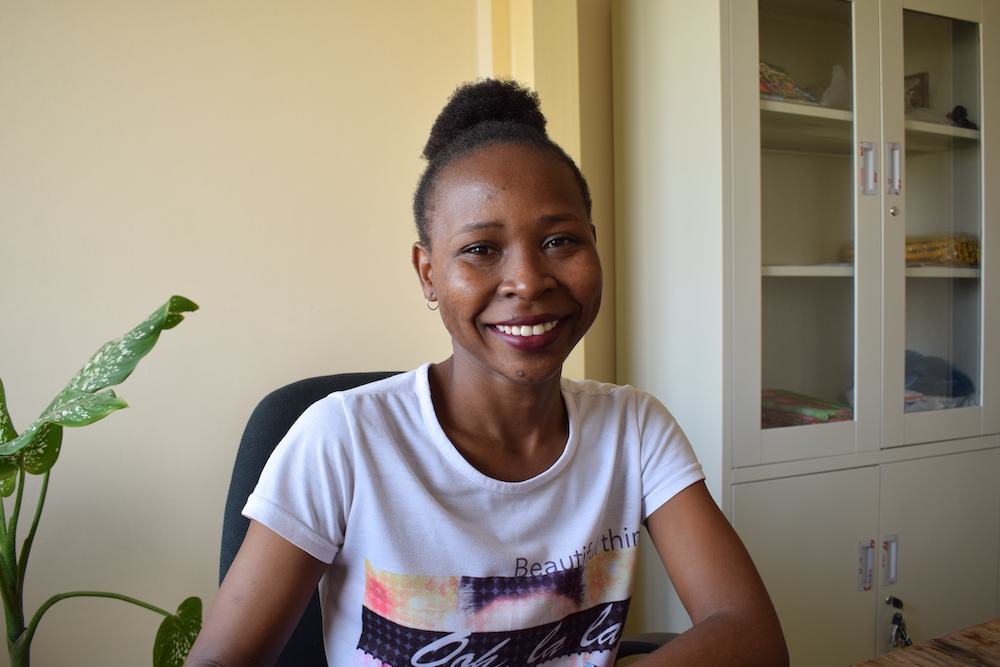
Rosa: Do you consider the technical advisory program from HORIZONT3000 important? Why?
Marjú: Besides the positive impact on the person being directly advised, which deepens their knowledge, it is also highly beneficial for the partner organization receiving the technical advisor. This program fosters knowledge growth and the exchange of experiences. Collaborating with specialists in a specific area brings different perspectives, productive methods, and a focus on achieving better results.
Rosa: How was this program important to you?
Marjú: When I started working with you, Rosa, I had just graduated. My understanding of communications was primarily centred on traditional media such as newspapers, radio, and television. So, being able to experiment and learn about other communication areas was a great opportunity for me. We explored the graphic component, for instance, to tell stories in a more engaging way, which was a new skill I acquired while working with Rosa. Utilizing digital platforms, social media, and newsletters to share these stories and showcase the impact of ESMABAMA’s work and other realities has been very rewarding.
Additionally, we developed ESMABAMA’s new website from scratch, a lengthy and challenging experience that allowed me to gain insights into my country’s realities that I was previously unfamiliar with. I didn’t have solid concepts of how it works, or how to build a website. We aggregated many, many stories on the website, of three areas where ESMABAMA works for more than 30 years.
Working for an NGO with a strong social mission and understanding the impact my work has on the beneficiaries and their stories is a truly gratifying experience. It allows me to connect with the “real Mozambique” and also raises awareness among people about realities they might be unaware of.
Rosa: HORIZONT3000 also promotes the KNOW-HOW3000, the knowledge management program. What did you find most interesting in this program?
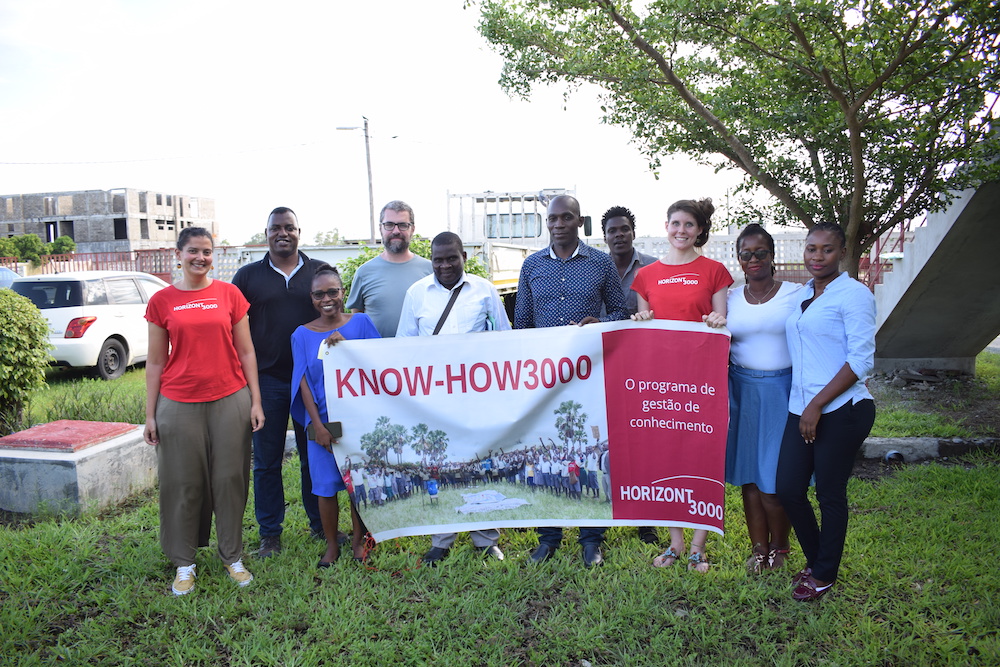
Marjú: This program introduced us to various methods for capturing knowledge within an organization. In my view, the main challenge for any organization is preserving knowledge over the years, especially when people leave. I participated in two workshops facilitated by the knowledge management TA. The first covered basic knowledge management concepts, while the second involved a knowledge management self-assessment for the organization. During the latter, I collaborated with colleagues from different departments to discuss how we could improve in this aspect. We now have a work plan in place and are implementing it.
Rosa: ESMABAMA primarily operates in rural areas where gender awareness is a significant challenge. How do you feel about working in such a predominantly masculine environment?
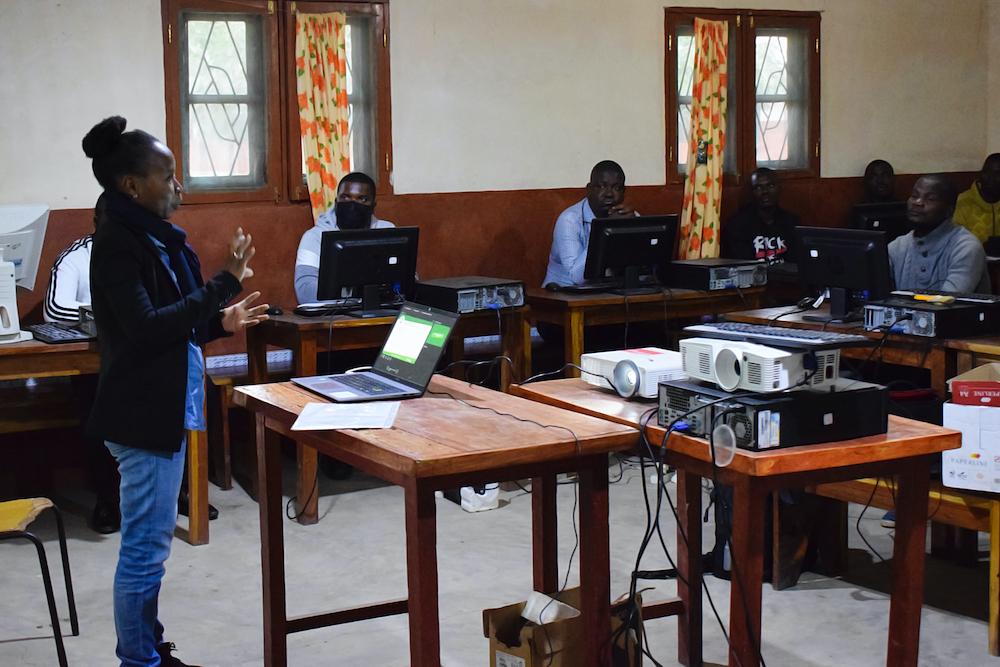
Marjú: We have grown up with the notion that women are only suited for specific roles, such as housework. In our reality, when parents can only afford to send one child to school, even if a girl has better grades, it’s usually the boy who gets the opportunity. Despite the harsher conditions in rural areas, I am proud to excel in my work. Gender inequality has persisted for generations, making it an ongoing challenge. However, even in the face of scepticism, I strive to demonstrate that I can perform my job exceptionally well and contribute to dispelling the notion that “she can’t do this… she’s a woman, she won’t excel”. For me, it’s inspiring to work in rural areas, where women facing these challenges can witness my success and think, “If she can do it, so can I”. This is truly inspiring.
Rosa: Have any women or men expressed surprise at the work you do at ESMABAMA, particularly during missions?
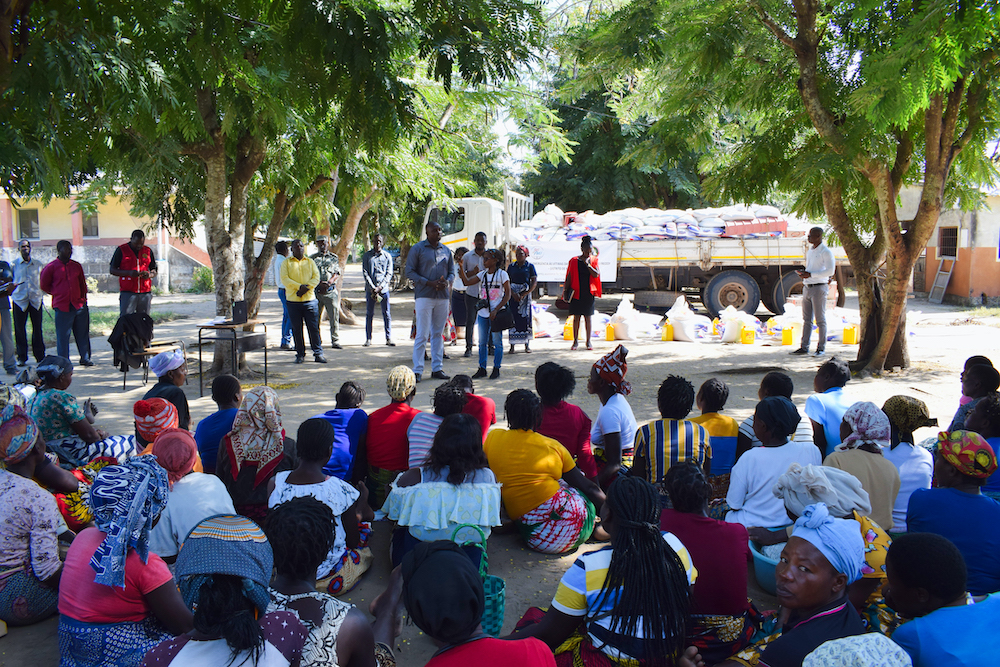
Marjú: Yes, there was a woman from an agrarian association in Barada who commented when she saw me carrying equipment (a camera and tripod), “Isn’t that too heavy for you? Oh, but this is excellent work!” Many people also express curiosity due to the equipment, which is often a novelty in rural environments. However, I genuinely believe that we are inspiring people to pursue their dreams.
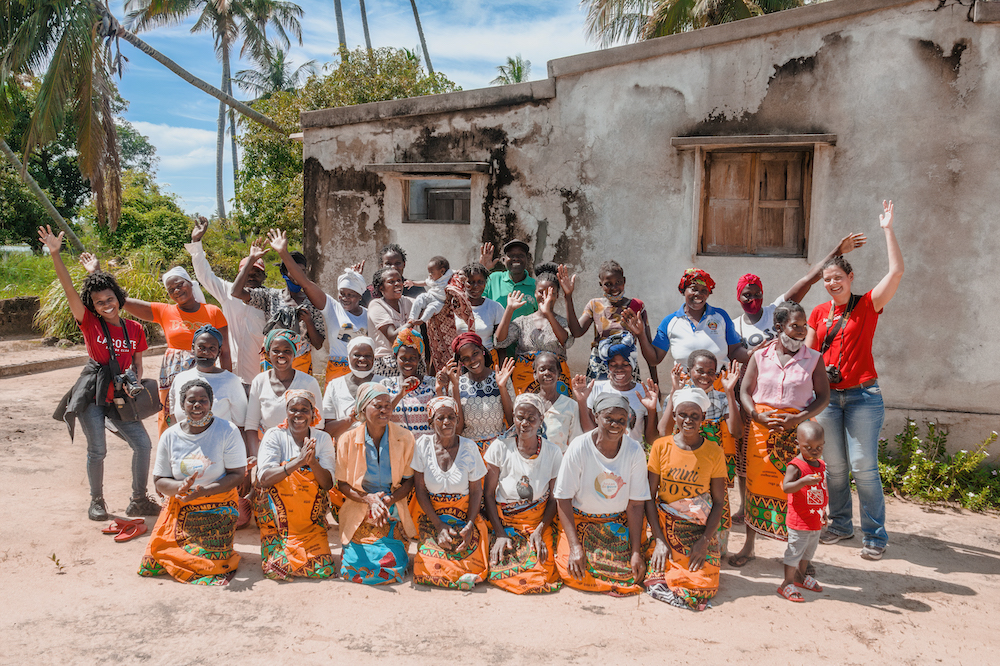
Thank you, Marjú! 🙂